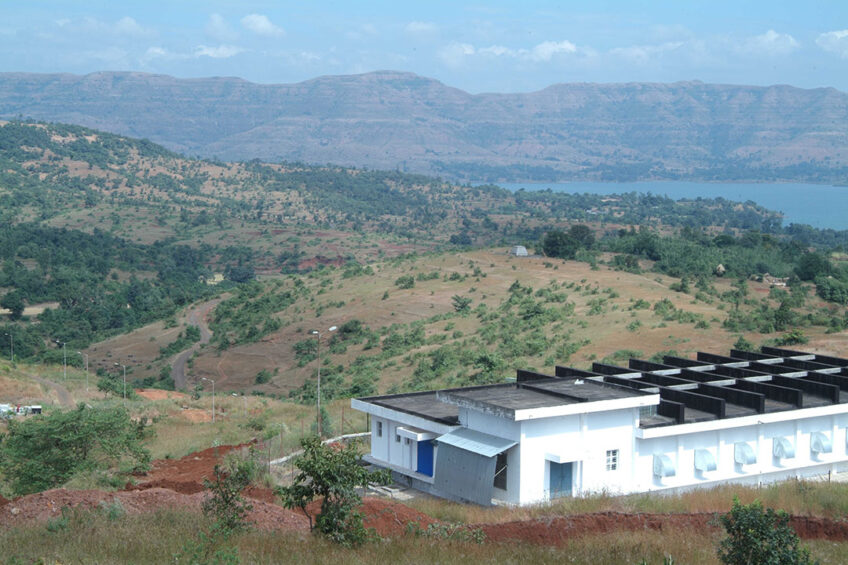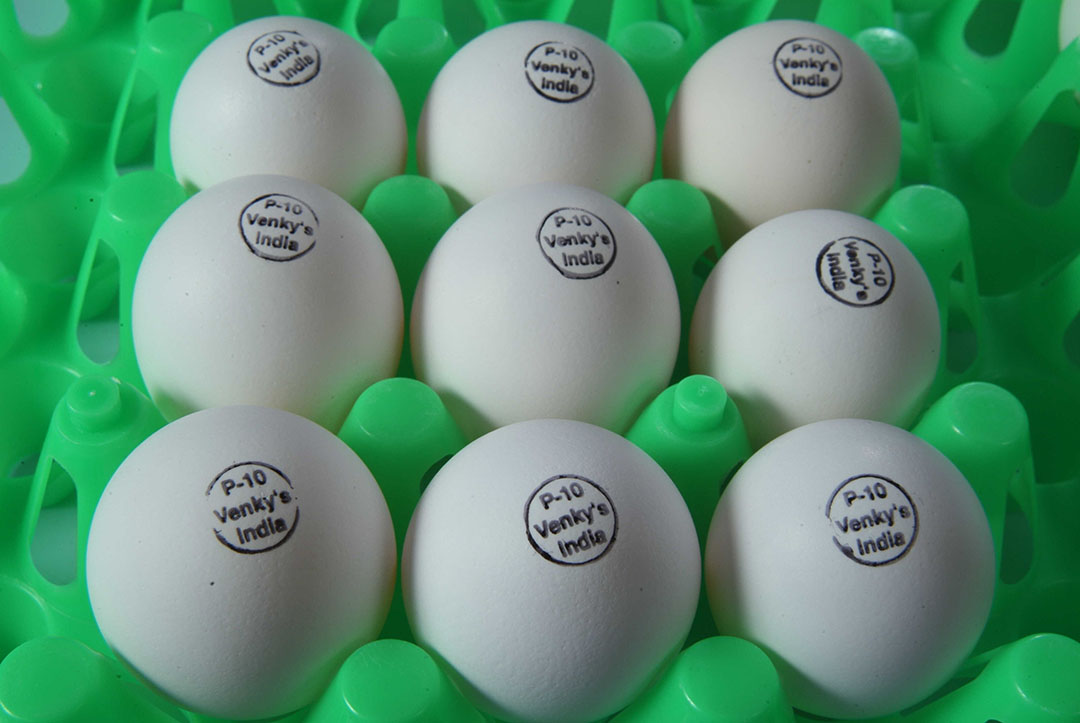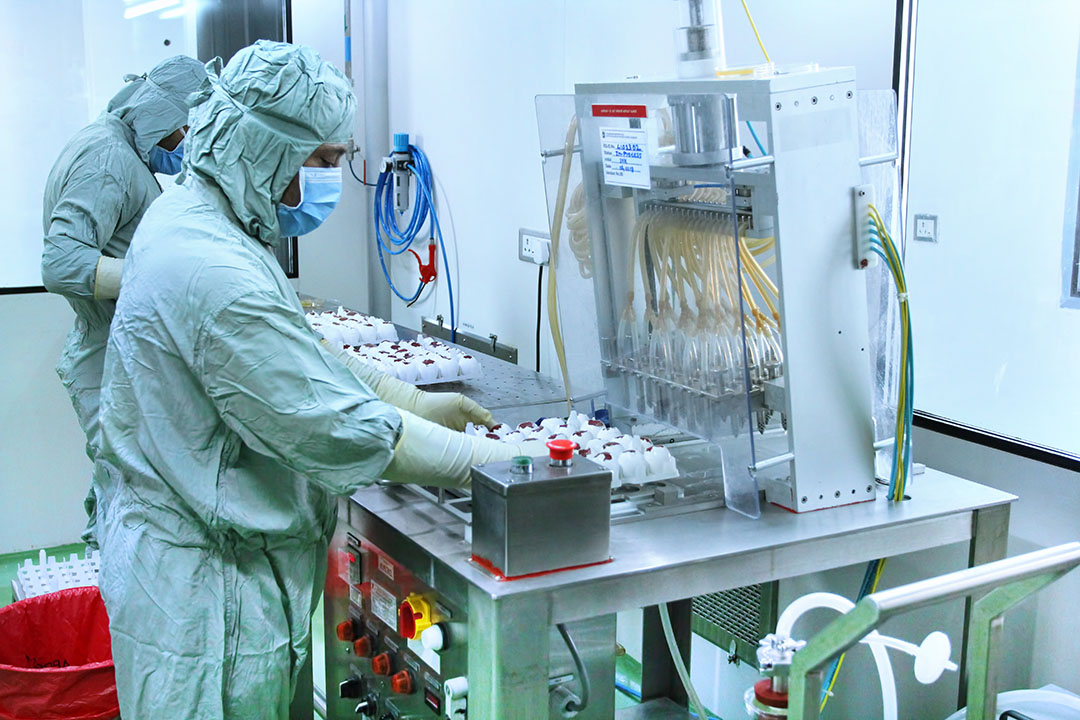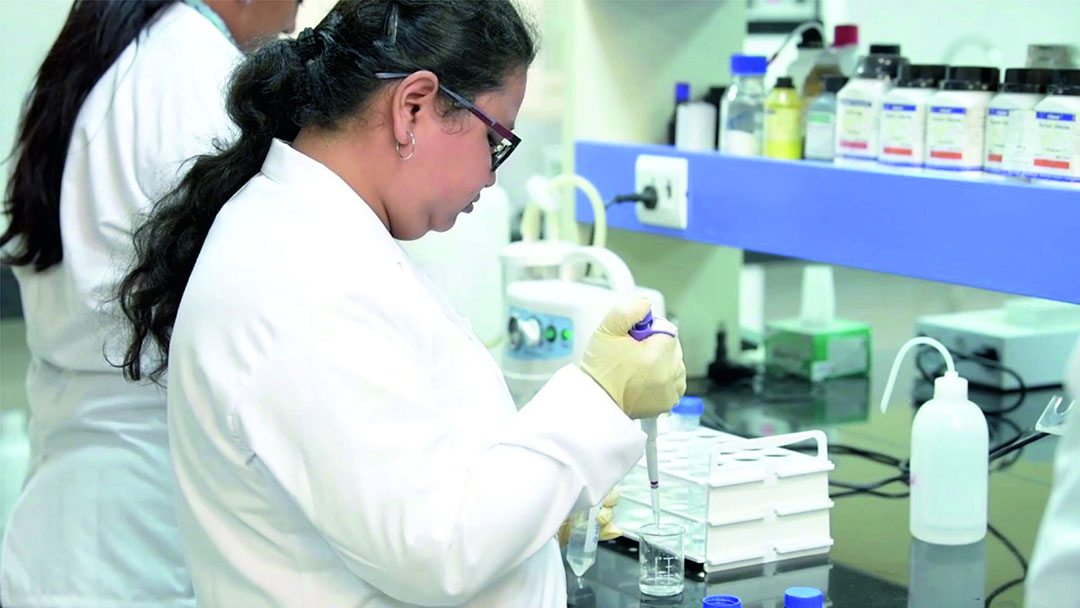Seizing every opportunity to expand

Currently Venkateshwara Hatcheries group in India is the largest fully integrated poultry group in Asia. On top of that, it is the third largest producer of SPF eggs in the world. Furthermore, the group is involved in genetic research, poultry disease diagnostic services, vaccines, feed and equipment and many, many more things.
We will seize every opportunity to expand, wherever it may be.
Chair Mrs Anuradha Desai
The VH Group was established in 1971. Late founder and chairman Padmashree Rao, is fondly referred to as ‘The Father of the Indian Poultry Industry’. He established Venkateshwara Hatcheries Private Limited in Hyderabad and later shifted its base to Pune. This part of India has the more favourable climatic conditions that are required for livestock research. Today the group is popularly known as ‘Venky’s’. With a unique combination of expertise and experience and supported by strategic collaborations, the company diversified its activities to include SPF eggs, chicken and eggs processing, broiler and layer breeding. SPF eggs produced by VH Group are used for production of various poultry/large animal vaccines by companies in the VH Group. The eggs are also sold to other vaccine manufacturers in India and they are exported to third countries. Today the group is the largest fully integrated poultry group in Asia. The VH Group is the parent company to a number of reputed subsidiaries under its wide umbrella and it successfully caters to poultry and its allied sectors. The pioneering efforts of the VH Group have been rewarded with several national and international awards.
‘Tremendous scope’
The VH Group is firmly rooted in India and that will remain its main area of growth. “Considering the vast gap between the present per capita consumption of eggs and poultry meat and the desired levels of consumption in India, as well as future growth in population, there is a tremendous scope and need for growth,” says VH Group chairperson Anuradha Desai. “VH group will play a major role in bridging this gap. Hence, India will continue to be our main area of focus.” At the same time, Mrs Desai emphasises that the future growth plans are not limited to India or Asia alone. “With our strong infrastructural and R&D foundations, we are capable of playing a significant role in the global poultry industry.”Consumer behaviour is also changing in India, Venky’s notes. ‘’There is a slow, but perceptible shift in consumer preference in favour of hygienically processed, convenience foods. Various factors, such as overall growth in national economy resulting in higher disposable income among the middle income groups, has increased awareness about food safety, rapid urbanisation and double-income nucleus families leading to higher demand for convenience foods have led to this shift in demand pattern.” Mrs Desai continues: “We envisage a distinct change in the demand scenario and consumer-profile over the next decade or so, as new, younger generations of Indians become economically active. Venky’s is aware of this potential change in consumer behaviour and is fully prepared to embrace the change.”

Monsoon-dependent
VH Group foresees no problems as far as availability of staff is concerned. Within the animal husbandry sector in India, the company is one of the most respected, well established corporate entities, capable of attracting, training and retaining talented and competent personnel. However, non-availability of essential feed ingredients in required volumes and fluctuations in their price can be an obstacle temporarily, as production of these ingredients in India is monsoon dependent. Similarly, incidences of poultry disease outbreaks can adversely impact demand from time to time. Mrs Desai: “These are, however, minor, temporary road bumps and will not be major obstacles in the long run.”
‘The customer is always right’
As far as management is concerned, VH Group sees a bright future. “We see VH Group as a corporate body that will hold farmers’ well-being, consumers’ satisfaction and employee welfare higher than any other corporate goals,” states Mrs Desai. These core values and an unwavering commitment to quality products and services have enabled us to build and retain a vast, loyal customer base. The current management, as well as the next generation management team has inherited these values, philosophy and commitment from the group’s founder-chairman Dr Rao. He used to say ‘the customer is always right’ – and that is what the company believes in. Mrs Desai: “We’re sure these principles will continue to guide and lead us to prepare the VH Group and its staff to meet future challenges effectively and adapt to the changes that are inevitable in any sector. We will continue to play a major role in the poultry industry.”

For small farmers
When the VH Group established their indigenous genetic research and development projects in the early 1980s, it was not merely a profit-oriented programme. Of course, the commercial intent was there, but, according to Mrs.Desai “it was Dr Rao’s firm conviction that our poultry industry should not be dependent on perpetual imports for its requirement of breeding stock – the most important input for production. Creation of the Pure Line breeding projects was a conscious step forward to free the Indian poultry industry from such dependence on imports and towards self-reliance.”
To achieve this end, the company established 2 pure line breeding projects, Venkateshwara Research and Breeding Farm, a Joint Venture with ISA Breeders in the USA (now Hendrix Genetics), for production of layer breeding stock and Venco Research and Breeding Farm, a joint venture with Cobb Vantress in the USA for production of broiler breeding stock. The success of this R&D program resulted in a phenomenal increase in productivity levels of both layers and broilers according to Mrs Desai “by way of substantial increase in hen housed (HH) egg production, lower feed conversion ratio (FCR), a reduction in the growing period of broilers, a reduction in mortality levels and higher disease resistance etc. This, in turn, led to a certain degree of stability in this risk-prone industry and consequently, a quantum jump in production. These improvements in productivity enabled farmers, especially small farmers, to endure and stay in business in spite of the steep increase in the cost of inputs, seasonal fluctuations in farm-gate prices and recurring incidences of diseases such as avian influenza.”
At VH, the Genetic Research & Development has always focused on our breeds’ adaptability to varying environmental and feeding conditions. Farmers realised that such adaptability was essential and so VH Group’s BV 300 Layer and Vencobb broiler have become the most preferred birds in India. As a result, VH has enjoyed over 75% market share for its layer and broiler breeds for the past three and half decades. VH’s Genetic Research program has received several national and international awards, notably the election of our chief geneticist Dr G.L. Jain in the International Poultry Hall of Fame by the World’s Poultry Science Association.

SPF eggs
SPF eggs are the basic raw material required for production of egg-based live viral vaccines for humans and livestock. As per the guidelines prescribed by WHO and other international forums, the basic SPF breeding stock must be free from all vertically and laterally transmitted poultry pathogens and tested every week for negative status for 32 disease agents. Mrs Desai: “Production of SPF eggs is considered as the ultimate in poultry husbandry. Large-scale production of SPF eggs is a domain mastered and fully understood by very few companies in the world. Apart from the USA and Germany, Venky’s, is one of the few producers in this high-tech area and the first in South East Asia.”
Today VH Group has four production facilities, with 32 Filtered Air Positive Pressure (FAPP) houses with an installed capacity for 100,000 birds to produce more than 12 million SPF eggs per year. Looking at the preference of vaccine producers and their goal to source eggs locally, VH Group established a separate SPF egg production facility called ‘Wayward Acers’ at Picken in South Carolina, USA in 2012. With six FAPP houses and an annual production of 0.5 to 0.6 million eggs, US poultry vaccine manufacturers can source eggs on their own continent. “With the production facilities in India and the USA, VH Group is the third largest producer of SPF eggs in the world and we will keep our eyes open for future growth, wherever the opportunity arises,” says Mrs Desai.
 Beheer
Beheer




 WP Admin
WP Admin  Bewerk bericht
Bewerk bericht